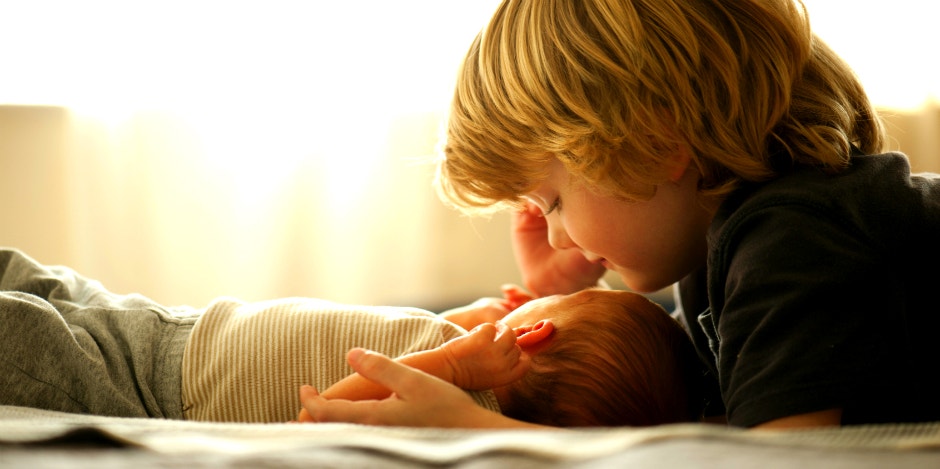The Sweet Yet Powerful Way Your Kids Give YOU Unconditional Love
Sometimes, kids teach us more than we teach them.
 iStock
iStock Toni is sitting cross-legged on the rug, sipping her steaming mug of coffee. This way she can relax with her pal, whilst being close enough to little Emma to respond quickly if something goes into her mouth that doesn't look like food. One minute, the two young mothers are sharing stories of their kids and laughing together — the next moment Toni's face crumples and she bursts into tears. The stresses that she's facing, suddenly rise up like a tidal wave and everything seems to overwhelming.
But before her friend can reach her, there's two chubby little hands holding her cheeks, and the child's soft little face against her.
"Mummy sad," her daughter coos, stroking her cheeks with love, "Mummy sad."
Her baby's eyes are nearly crying, too. In that moment, Toni laughs and cries at the same time.
While she doesn't want her toddler, Emma, feeling distressed because of her upset — she's amazed how, although, she'd seemed so absorbed in her play, she suddenly returned, fully present, to comfort her mother.
"I suddenly realized how tuned in she is to my emotions," Toni reflects afterward.
That makes sense because, although the cortex (the "thinking" outer layer of the brain) has yet to fully develop in the toddler brain, the limbic system, (the seat of emotions) is already well tuned in to her own experience and to those around her.
This means that your little one is very responsive to the tone of your voice, and all the other non-verbal messages you transmit: your energy level, your breathing, your facial expression, and your eye contact.
We can learn so much from our children, because it's often our cortex (the thinking, reasoning part of the brain) that gets in the way of unconditional love and being present to others, in a helpful way. Young children haven't developed our adult tendency to "fix" everything. So often, as grown ups, our own discomfort with another's upset causes us to rush in trying to minimize the other's experience, to judge, or to offer a solution.
Think about the well-meaning but, usually, unhelpful comments adults make in times of upset:
"It's not really that bad."
"It could have been worse."
Or we rush in with questions, when what the other person first needs is to "feel felt," because it's the human connection of unconditional love that calms us.
When we experience that bond, the body starts releasing the chemicals that restore our natural balance. The unconditional love that a toddler offers isn't about "fixing you" or asking "Why?"; it lets you be where you are right now, tears and all. And the amazing thing that neuroscience now knows, is that when we have the release of tears or of laughter — which naturally erupt when we're unconditionally loved — the emotional overwhelm subsides and our ability to think, clearly, re-establishes itself.
Little children are intuitively aware of our human desire to, sometimes, be held and comforted — without any explanation needed, without judgments made, or solutions offered. Little ones know how to just "be there" — we'd do well to learn from them.
Interested about how you can further exhibit unconditional love?
More content from YourTango:

